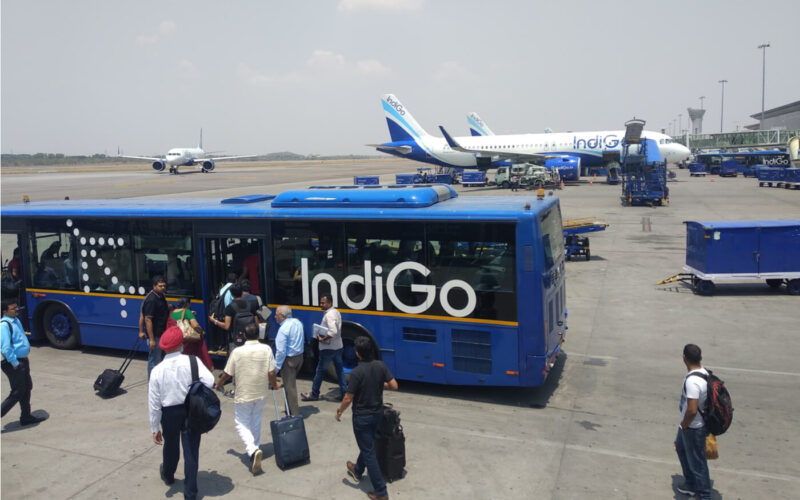IndiGo’s woes with its A320neo engines might soon come to an end. Calling the work that the airline has done so far “impressive”, the Directorate General of Civil Aviation (DGCA) has set a new deadline for IndiGo to completed remove unmodified, potentially dangerous engines from its fleet.
IndiGo’s troubles with A320 engines
The PW1100G is one of two engine options available for Airbus A320neo, alongside the CFM International LEAP. The turbofan commenced commercial service in 2016, debuting its first technical problems the very same year.
IndiGo was one of the first airlines to introduce Airbus A320neo to its fleet, taking first deliveries of the model in 2016. However, the airline’s A320neo operations has since been marked by multiple engine failure incidents and plane groundings related to the issue.
For instance, in October 2019 alone the DGCA recorded four events when IndiGo Airbus A320neo aircraft was forced to turn back due to engine shut down in flight. The failure of third stage LPT blades were found to be cause for these events, called by the authority a “serious concern”. In all four cases, the engines affected were unmodified Pratt & Whitney engines powering the A320neo.
The word “unmodified” is key here, as DGCA believes these particular engines contain an unsafe condition and is thus demanding the airline to replace them with new ones. The order to replace all unmodified engines was issued on November 1, 2019. IndiGo was reportedly given a deadline by January 31, 2020 ‒ a task that was viewed as challenging but achievable by the airline’s management.
Speaking with reporters during the Dubai Airshow in November 2019, Ronojoy Dutta, IndiGo CEO said the task was a difficult one but was hopeful in meeting the deadline. “It’s a challenge. But we have every intention of meeting it. Pratt is helping us and we are trying to make that work as fast as we can,” said Dutta, as reported by Reuters.
Impressive work & compressed timeline
Now, the Indian aviation authority is pushing the deadline to another challenging, but in its belief do-able time limit. In a statement issued on January 13, 2020, the authority stated that since the order was issued, all parties involved (including IndiGo and the engine manufacturer) made “significant efforts towards completion of the task”.
The stakeholders have since submitted an action plan under which a complete change of unmodified engines in the IndiGo A320neo fleet, including a procurement of 135 engines, is planned by the end of June 2020.
It is worth noting that although Indian regulators initially expected that IndiGo would need to have 120 modified engines installed on its fleet, following Boroscopic inspections and due to “other reasons” the number has since grown and is now likely to be about 135, DGCA estimated.
— DGCA (@DGCAIndia) January 13, 2020
“Needless to say, the timeline looks impressive if we recall that originally it was expected to be accomplished in 14 months i.e. from November 2019 to December 2020,” the authority’s statement reads.
However, DGCA, in its own words, “feels” that the later timeline could be compressed further. The authority has set a new deadline for the complete removal of unmodified engines from IndiGo’s fleet on May 31, 2020.
India-specific engine issues?
Pratt & Whitney engines powering the A320neo have suffered multiple problems, some of which are more common in India. While only two operators, namely IndiGo and Go Air, operate A320neos powered by faulty engines, approximately a quarter of all these aircraft were found in India, the DCGA has previously outlined. For instance, it estimated that of 436 PW1100G-JM-powered A329neos worldwide, 127 are operated in the country.
Indian airlines were also more affected by some specific PW1100G problems, particularly Low-Pressure Turbine (LPT) failures. Of 27 such events recorded globally between 2017 and August 2019, over half (15) affected Indian operators. In contrast, only four of the 18 cases of MGB failures, another PW1100G engines’ problem, fell on Indian carriers.

